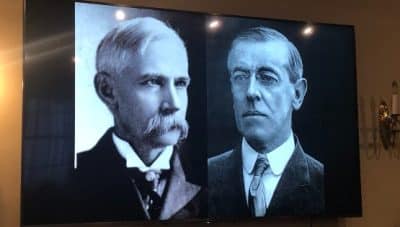The Shenandoah Valley was surprised by a snowstorm that wasn’t forecast until it was already under way. It shouldn’t be a surprise, then, that local authorities were slow to respond when the flakes did start to fall, and why a relatively small storm – leaving at most a couple of inches of snow on the ground in most locations – ended up being such an issue.

If you’ve been watching the TV news reports on the situation in Atlanta, you’ve heard quite a bit of tongue-lashing aimed at city and state officials in Georgia over who should take blame for the snow disaster, as if assigning blame is the most important part of the story, with vehicles, people, schoolchildren, still on the roads more than 12 hours after the snow started to fall.
But here’s the quick answer on the blame game: snow happens.
Weather forecasting is a lot, lot better today than it was 10 years ago, 25 years ago, certainly 50 years ago, but it’s obviously still an inexact science. Take our situation here in the Valley as an example. We woke up here in Virginia Tuesday morning to reports that there was a 30 percent chance of snow showers, and the weather alerts in our email were not about snow, but rather about a wind chill advisory.
When the snow started to fall, as flurries in the early afternoon, we could only assume that it was temporary, because that’s what the forecast told us.
Then it started accumulating. Still the forecasts didn’t change to tell us that what we were seeing was actually supposed to be happening.
Most of us went to bed late Tuesday or early Wednesday looking out at streets and roads in front of our homes that had yet to be touched by crews.
That’s not because of incompetence on the part of cities and VDOT here in Virginia, or local and state government officials in Atlanta, the focus of national media attention right now. It’s because governments don’t just have snow-plow crews on call all winter long just waiting to be put into action to treat roads when the first flake hits the ground.
It would simply make no sense to have that capacity as part of the government infrastructure.
Can resources be mobilized better? Could they in this case? No doubt. Lessons will be learned, particularly from the Atlanta situation, that will be applied throughout the country in the future. Resources can always be deployed more efficiently, effectively and timely.
As to the blame game, again, the media will assign blame as it will. Heads will no question roll, at least the talking ones on the cable networks.
Blame, we can hope, won’t be the focus of the after action efforts of local and state governments, but rather how to make sure that these kinds of things are dealt with better in the future.
Column by Chris Graham










